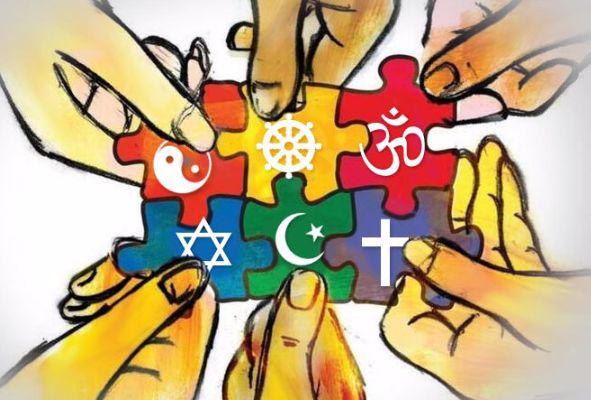National Integration
Jul 14, 2019 • 153 views
India is a land known for unity in diversity. Diversity is there but where is unity? It finds echo only in the speeches of the wily politicians. The seeds of distrust and separatism were laid in 1916 in the Lucknow Pact. The congress party accepted the principle of separate electorate for Hindus and Muslims. Communalism became victorious resulting in the partition of India. Then there was bitterness among Sikhs and Hindus in 1984. The divisive forces took the ugliest turn in the form of reservation for OBCs in 1993.
Divide and rule are perhaps the best that Indians could learn from their erstwhile masters. Factionalism is the bane of Indian society. Religion, nationality, and principles of secularism are expected to generate harmony in society. It is a sheer tragedy that these very elements have been utilized to perpetuate dynastic rule for over about 65 years.
The process of nation-building is not problematic in a homogenous society. At least religion is not an obstacle. However, there might be divisions in society on an ideological basis. But the adoption of common and uniform values becomes difficult for people belonging to different religions. India represents such a society where fantastic elements of religions are subject to divisive forces. Thus, secularism is thought of from the minority point of view.

Different languages prevailing in society causes fraction in it. India has no national language of her own. post-independent India was separated on the basis of regional language. Hindi is not acceptable to southern states. English finds no mention in the eighth schedule of our Constitution. Yet it is a pity that it has taken the role of our national language. For genuine integration, the fruit of economic development should be shared by each and every section of society. Otherwise, the have- nots never think in terms of national unity. The feeling of national integration always gets obstructed due to unfair treatment and difference in opinion. Economic development and removal of economic disparities play a vital role in the interest of national integration. There must be psychological, emotional, cultural and economic integration among masses. This implies that people must change their loyalties from petty issues to the nation as a whole.
This kind of eye-opening is quintessential. With hostile neighbors on our borders, we must understand that we stand united, divided we fall. It is quite evident that national integration can not be inbuilt. It is assimilated in our soul. Whenever a match is played, we undoubtedly wish India to win without any hope of reciprocation from the opposite side. It just has to be constantly guarded against and zealously pursued. It is necessary that the spirit of unity should be inculcated in the minds of youth through education. Above all, our political leaders should realize that time is running out of the nation. They must think of India, and not of their loaves and fishes. National integration does not mean imposing uniformity or removing differences in identity. Education of the youth on the right lines can bring about national unity based on national integration.
To sum up, massive efforts have to be launched at the grassroots level of society to inculcate the importance of national integration in the people. People will have to shun the tendency of asking what their country can do for them. Instead, they have to think in terms of knowing what they can do for their country. India is going through a challenging phase. Even the greatest sacrifice is too small. Our very survival as a nation is at peril. It is today or never. Anyone who resists against the very idea of national integration serves the position of an enemy whether he is living in the country or across the borders.
